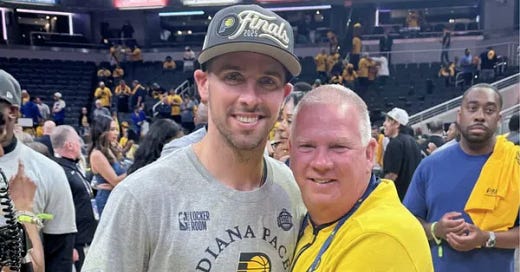I’ve been the problem.
I’ve made excuses.
I’ve jumped in when I should’ve stepped back.
I thought I was helping. I wasn’t. I was interfering.
And the second I saw it clearly, I stopped.
Because real support isn’t rescue. It’s responsibility.
Most parents won’t say it out loud, but here it is:
They’re scared their kid will fail —
So they pad the experience.
Manage the fallout.
Try to guarantee the outcome.
You’re not raising a competitor.
You’re raising someone who panics when things aren’t handed to them.
Support isn’t about protecting your child from discomfort.
It’s about preparing them to face it — and get better because of it.
Here’s What Support Isn’t:
Calling the coach to “explain context.”
Blaming the trainer when things don’t click.
Making excuses for why they didn’t perform.
Repeating “he just needs confidence” while ignoring bad habits.
Pretending effort and progress are the same thing.
You are not their shield.
You are their standard.
Every time you defend casual effort, you’re cosigning stagnation.
Every time you sugarcoat feedback, you’re delaying maturity.
Every time you absorb the consequences, they learn nothing.
The job is not to clear the road. The job is to raise someone who can walk it — uphill, alone, under pressure.
What Real Support Actually Sounds Like:
“You weren’t ready. So fix it.”
“You dropped your head after that turnover. Fix that, too.”
“You don’t get to talk about who got more minutes. You had yours.”
“We don’t complain about people who outwork us.”
It’s not mean. It’s precise.
It tells the truth without apology — because the goal isn’t comfort.
It’s growth.
If They Can Only Succeed Under Perfect Conditions…
…then they’re not ready for real competition.
Because the real world doesn’t care about feelings, politics, or potential.
It responds to preparation.
That means your job is not to protect them from criticism.
It’s to help them develop the skillset to absorb it, use it, and come back stronger.
Let them feel the sting.
Let the mistake land.
Be there — not to erase it — but to ask, “What’s next?”
You’re not being harsh. You’re being useful.
And that’s what real support looks like.



